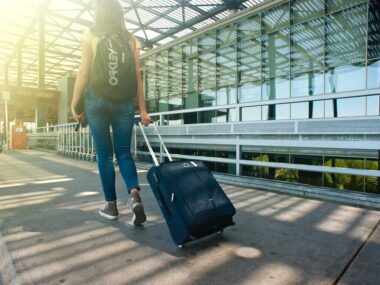Studying abroad is a transformative experience that extends beyond the classroom, offering a unique opportunity to immerse oneself in a new culture, broaden perspectives, and embrace diverse experiences. While the academic aspect is undoubtedly crucial, incorporating travel into your study abroad journey can significantly enhance and enrich the overall experience. Here’s how:
Cultural Immersion Beyond Borders
Traveling while studying abroad allows you to delve deeper into the cultural tapestry of your host country. It goes beyond textbooks and lectures, enabling you to interact with locals, savor authentic cuisine, explore historical landmarks, and partake in traditions and festivals. Engaging with the local community on a personal level fosters a deeper understanding and appreciation of the culture, amplifying the educational experience beyond the confines of the classroom.
Broadening Perspectives and Global Awareness
Venturing beyond your study base provides exposure to diverse perspectives and ways of life. It challenges preconceptions, broadens your worldview, and cultivates a sense of global awareness. Whether it’s witnessing different societal norms, understanding varying political landscapes, or experiencing different social customs, these experiences offer invaluable insights that contribute to personal growth and a more nuanced understanding of the world.
Academic Enrichment Through Experiential Learning
Traveling can complement your academic pursuits by offering opportunities for experiential learning. Visiting historical sites, museums, and cultural landmarks relevant to your field of study provides a tangible context to theoretical knowledge. For instance, a history student studying in Europe can truly grasp the significance of historical events by visiting places where they transpired, thus deepening their understanding and academic insights.
Language Immersion and Communication Skills
Immersing yourself in a different linguistic environment through travel provides an unparalleled opportunity to enhance language skills. Interacting with locals, navigating unfamiliar surroundings, and conversing in the local language facilitate language acquisition in a way that cannot be replicated within the classroom. This immersive experience fosters confidence in communication and encourages linguistic fluency.
Personal Development and Independence
Traveling during your study abroad experience cultivates independence, adaptability, and resilience. Negotiating travel logistics, overcoming language barriers, and navigating unfamiliar territories foster personal growth. It instills confidence, problem-solving skills, and adaptability—qualities that are invaluable not only in academic pursuits but also in professional and personal life.
Tips for Maximizing Travel During Study Abroad
1. **Plan Wisely**: Research destinations, consider budget constraints, and plan excursions to complement your academic schedule.
2. **Embrace Diversity**: Engage with locals, try new cuisines, and participate in cultural events to fully immerse yourself in the local culture.
3. **Balance Travel and Academics**: Strike a balance between exploration and academic commitments to ensure you make the most of both experiences.
4. **Document Your Journey**: Keep a journal, capture moments through photos, and reflect on the experiences to cherish memories and track personal growth.
In Conclusion
Traveling during a study abroad experience isn’t just about sightseeing; it’s an integral part of the educational journey. It amplifies cultural understanding, enriches academic pursuits, and fosters personal development. By embracing travel as an extension of your study abroad experience, you open doors to a world of learning opportunities that transcend boundaries, leaving an indelible mark on both your academic and personal life.





